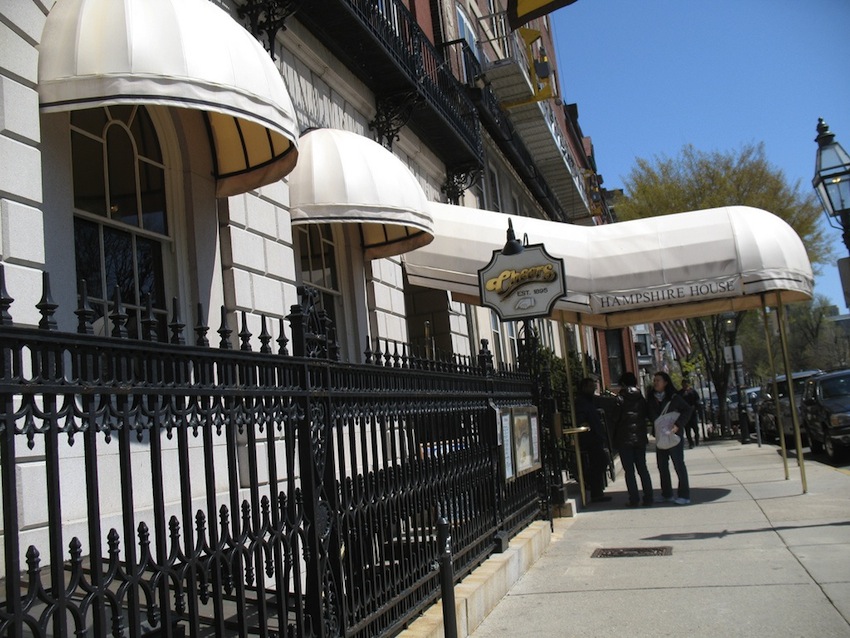The Restaurant Industry’s Ambivalence About the Liquor License Cap

Cheers bar image by Danny McKiernan on Flickr
There is a lot that is telling in the position the CEO of the Massachusetts Restaurant Association has taken on Gov. Deval Patrick’s proposal to lift the liquor license cap that has long limited how many businesses can serve alcohol in Boston.
The CEO, Bob Luz, tells the Boston Business Journal:
“I applaud the governor and other elected officials in looking at the food and beverage industry as something that can help spur economic development in our neighborhoods. [But] I think we have to be careful not to hurt people in the rush to get more business and development going.”
Basically, the lobby is torn. As we’ve noted in this magazine before, there are a lot of stakeholders who have an interest in maintaining the status quo. Under the current system, the state allows Boston just 1,030 liquor licenses. Because the sale of alcohol is so important to a restaurant’s bottom line, it creates a market for licenses in which a new restauranteur will pay well into the six figures to obtain one from another holder. That makes it difficult for independent entrepreneurs, particularly in the neighborhoods, to get on their feet.
There are a lot of people interested in maintaining this system, none of them motivated by a love of the big chain restaurants that result from it. They are the lawyers and politicians who wield influence over the important game of who gets a license. And then, of course, there are the current license holders. They have put a lot of money into something that, if Gov. Patrick’s proposal to flood the market with licenses goes through, will depreciate in value. You can see, then, why a representative of the restaurant industry might be torn between a policy proposal that would revitalize that industry and encourage new business while also financially hurting a lot of current restaurateurs.
“There has to be thoughtful deliberation and consideration given to protect those existing owners who have paid a significant premium for a license and sometimes have even used that as a pledge-able asset with their lender to help build the business,” Luz said earlier this week.
Basically, what is Patrick’s bill going to do to make it up to the people who had to play by the old rules, even as it fixes them? It’s an interesting side question in the larger debate, and one that is so far keeping the restaurant industry from taking a hard stand one way or the other.

